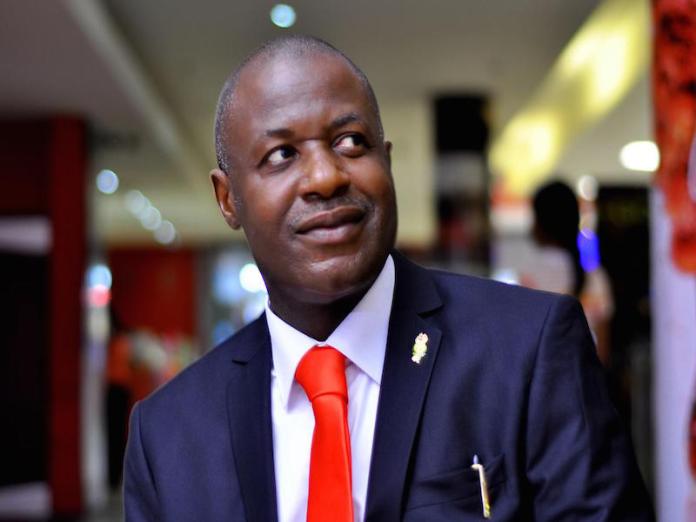The Governorship candidate of the governing All Progressives Congress(APC), in the 2015 general elections in Cross River state, Mr. Odey Ochicha has called on Nigerians to stop blaming President Muhammadu Buhari for the nation’s economic recession.
In a statement he issued in Calabar on Tuesday, Ochicha said that Nigerians should learn how to separate lies from facts.
Ochicha said, if not for the intervention of Buhari’s administration, the country might have been in total shambles by now.
Ochicha, a retired Nigeria National Petroleum Corporation (NNPC) manager stated that there is no where in the world that economy grows in space, therefore instead of accusing the APC-led administration, the people should ask former leaders of the structures they set up for our economy to grow without oil.
He blamed the former administration of Goodluck Jonathan, describing it as “insensitive and the most corrupt in the history of the country which has led us to the present quagmire”.
According to the statement, “Nigerians should begin to channel their questions to the right people and stop believing this rhetorics and illusions that President Buhari and APC are responsible for the nation’s economic woes.
“There is nowhere in the world that the economy grows in space. What were the structures the past administrations built for our economy to grow without oil? “The economy grows by the standard of infrastructure and institutions created but unfortunately, the Buhari administration inherited almost a failed state from the PDP that had the rare privilege of managing the affairs of this country for a whole 16 years,”Ochicha said.
Blaming the Jonathan administration for mismanaging the nation’s resources, he said:”I can’t understand why people are pointing accusing fingers at this administration. The former administration earned more than sixty per cent of our total revenue from oil yet there’s nothing to show for it. See what is happening with the former first lady? What work was she doing to have such stupendous amount of money in her various accounts?
“Over $31.4 million in separate accounts. What was her source of income? I served this country for 29 years, 6 months and grew to the rank of Deputy Manager in the NNPC but I cannot boast of such huge amount of money because I didn’t steal. But a woman who has contributed nothing to the development of our country is today richer than the entire South South region.
“When people talk about Jonathan handing over the largest economy to Buhari, I begin to wonder whether they don’t understand that Jonathan met a viable economy with the growth rate of 7.9 percent and left it at about 2.9 percent. Six months to when he was leaving office and when the prices of crude oil had began to fall, his Finance Minister told us that they were borrowing money to pay salaries of federal workers.
“But under the President Buhari’s administration, despite the difficult economic situation, the government has been able to pay salaries without borrowing. The last two month’s federal allocation shared was the highest in the history of this country and was not gotten from oil. Why is nobody talking about this?”
He called on Nigerians to be patient with the President, adding that “nothing good comes easy as the challenges the country is facing is some of the sacrifices we need to make to be great and prosperous again and it’s going to be shortlived considering the dogged approaches being adopted by the present administration to revive the economy”.
Continuing, Ochicha said: “Only few countries like United Arab Emirates(UAE), Norway etc that utilised their oil wealth very well are currently not faced with recession. In fact, Norway is surviving now from about $800 billion foreign reserve it had accumulated but here, former President Jonathan’s Finance Minister has said it all that they lacked the will to save even when they had the will to squander what other administrations had saved.So I want to appeal to Nigerians to be patient with the President.”
What we are going through now is the price other nations had paid to get to where they are. President Buhari and you the good people of Nigeria will make our dear country great and prosperous again. Together, we can build a new Nigeria that is great, powerful, progressive, prosperous, industrialised and world class

 Naira4 weeks ago
Naira4 weeks ago
 Naira4 weeks ago
Naira4 weeks ago
 Travel4 weeks ago
Travel4 weeks ago
 Jobs4 weeks ago
Jobs4 weeks ago
 Naira4 weeks ago
Naira4 weeks ago
 Naira3 weeks ago
Naira3 weeks ago
 Investment4 weeks ago
Investment4 weeks ago
 Travel4 weeks ago
Travel4 weeks ago




























